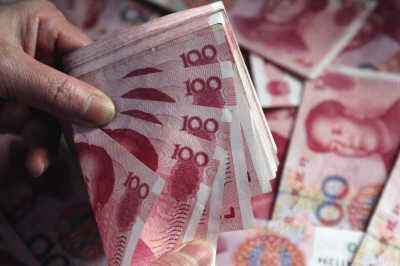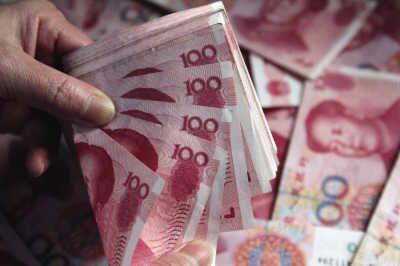
BEIJING, July 12 (Xinhua) -- Chinese banks extended 7.97 trillion yuan (about 1.2 trillion U.S. dollars) of new yuan-denominated lending in the first half of the year, but broad money supply growth has continued a downward trend, the country's central bank said Wednesday.
The lending volume represents growth of 436 billion yuan from the same period last year, the People's Bank of China said in a statement.
By the end of June, total outstanding yuan-denominated loans stood at 115 trillion yuan, up 12.9 percent year on year.
In June alone, a total of 1.54 trillion yuan of yuan-denominated loans were issued by Chinese banks, an increase of 153 billion yuan from June last year.
M2, a broad measure of money supply that covers cash in circulation and all deposits, expanded 9.4 percent from a year earlier as of the end of June, slowing down from a 9.6 percent growth recorded a month ago, the statement said.
M0, the amount of cash in circulation, was up 6.6 percent to 6.7 trillion yuan.
M1, a narrow measure of money supply which covers cash in circulation plus demand deposits, rose 15 percent to 51 trillion yuan, slowing from a 17 percent increase in May.
The newly added total social financing, another significant financing gauge, increased by 1.36 trillion yuan from the same period a year ago to 11.2 trillion yuan in the first half.
Ruan Jianhong, head of the central bank's surveys and statistics department, said the increase in total social financing indicated solid financial support for the real economy, while the slower M2 expansion was a result of financial deleveraging.
The central bank has tried to strike a balance between financial deleveraging, aimed at defusing risks and shoring up economic growth.
"Progress has been made in the financial sector in terms of supporting the ongoing reform and economic transition," said Ruan.
She cited figures that up to 82.5 percent of the new medium and long-term lending in the first half has flowed into service and high-tech manufacturing industries, while only 5.4 percent of the outstanding loans by the end of June belonged to industries with excess capacity.
Latest loan data also revealed milder growth in mortgage lending with outstanding real estate loans up 24.2 percent year on year, down 2.8 percentage points from six months ago.
Ruan also dismissed concerns over the slowing M2 growth, saying it should be regarded "objectively" as it was the natural result of prudent and neutral monetary policy and strengthened financial scrutiny.
Lower M2 growth is likely to become normal, and there is no need for excessive interpretation, she said.
China's M2 growth target this year was set at around 12 percent, one percentage point lower than the 2016 target.
Lian Ping, economist with the Bank of Communications, said credit demand would weaken in the second half due to less financing needs from the infrastructure sector and dampened mortgage demand following continued government curbs in real estate.
He expects that full-year credit will grow by about 12.5 percent, with new yuan loans to stand at around 13.5 trillion yuan for 2017.




 A single purchase
A single purchase









